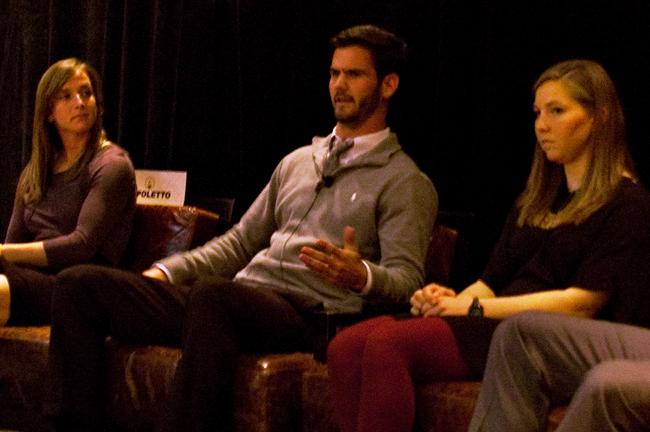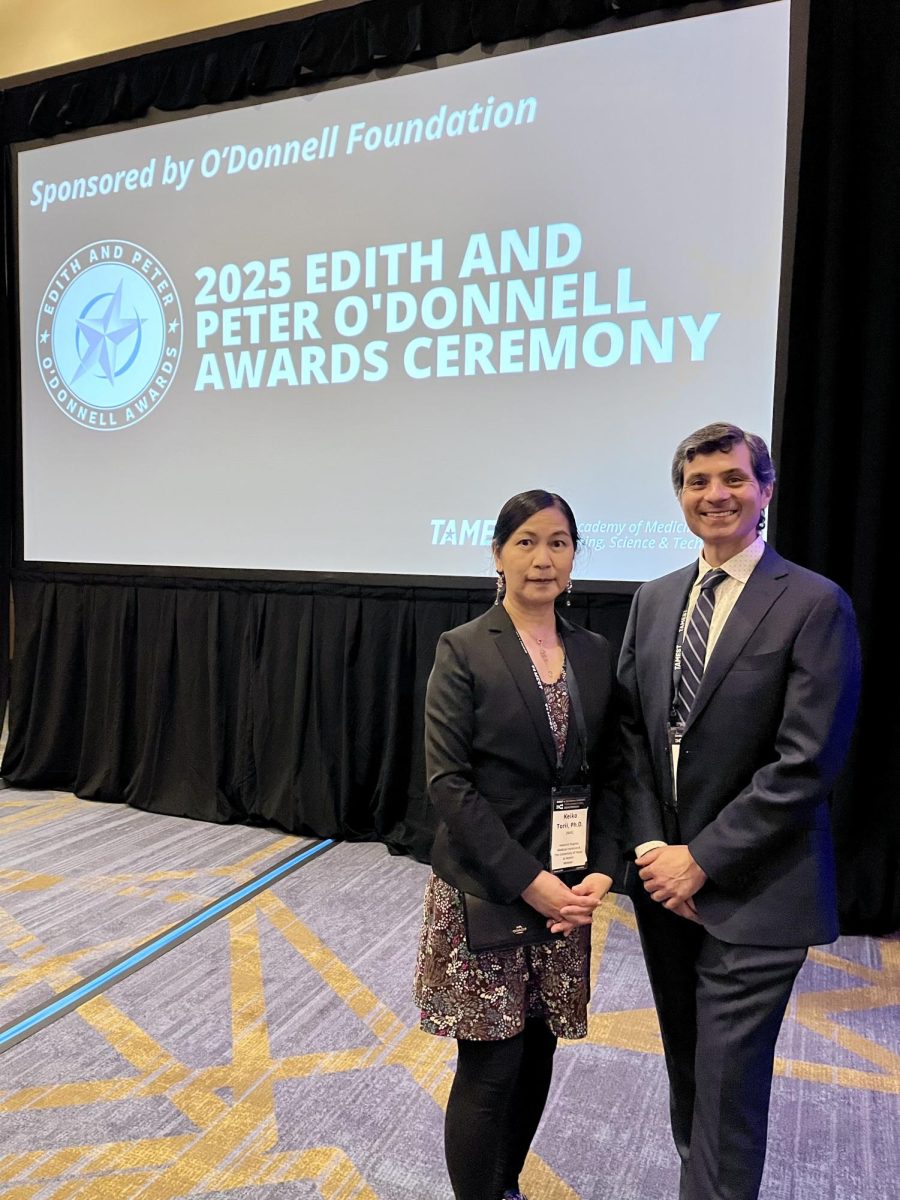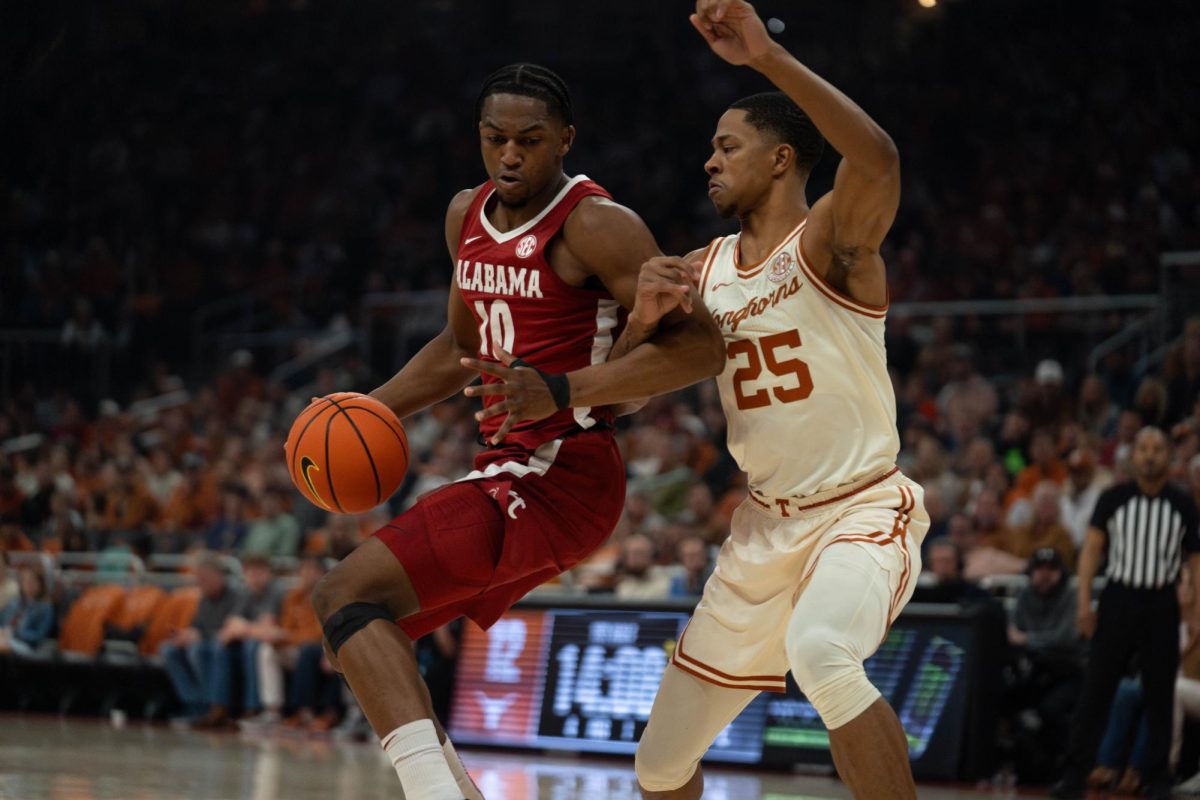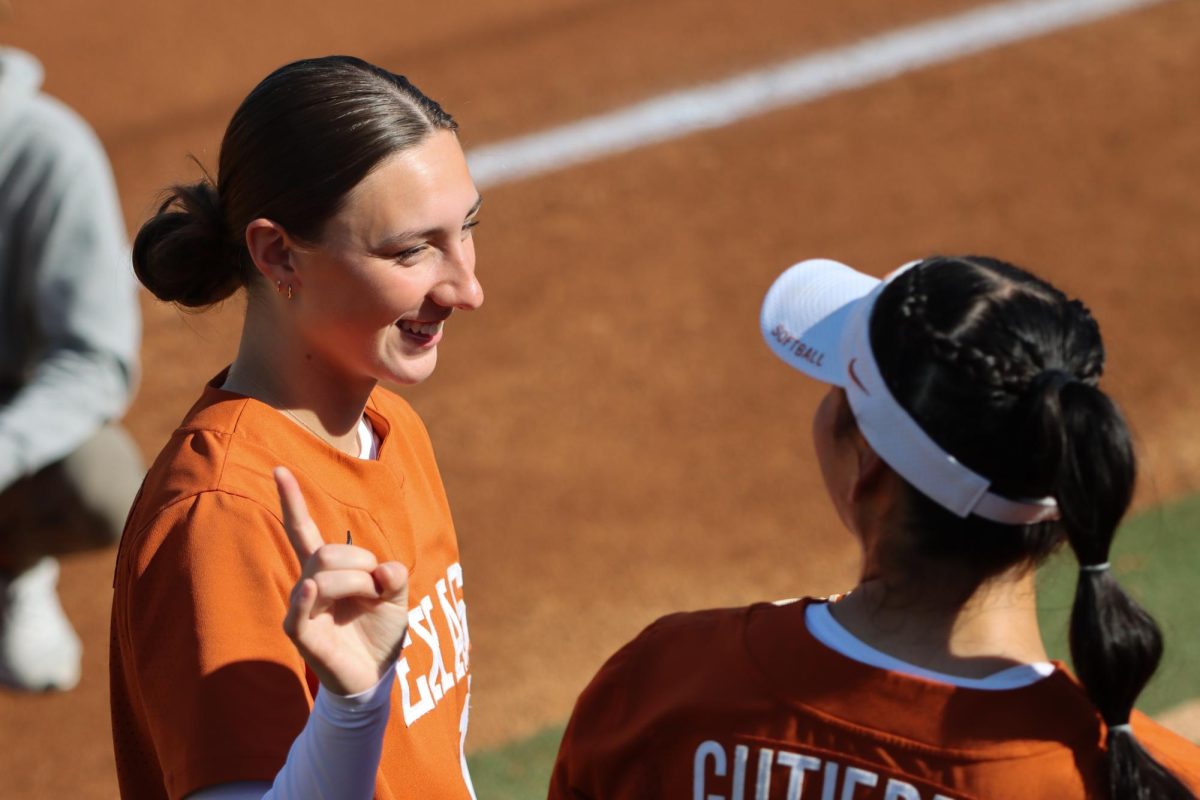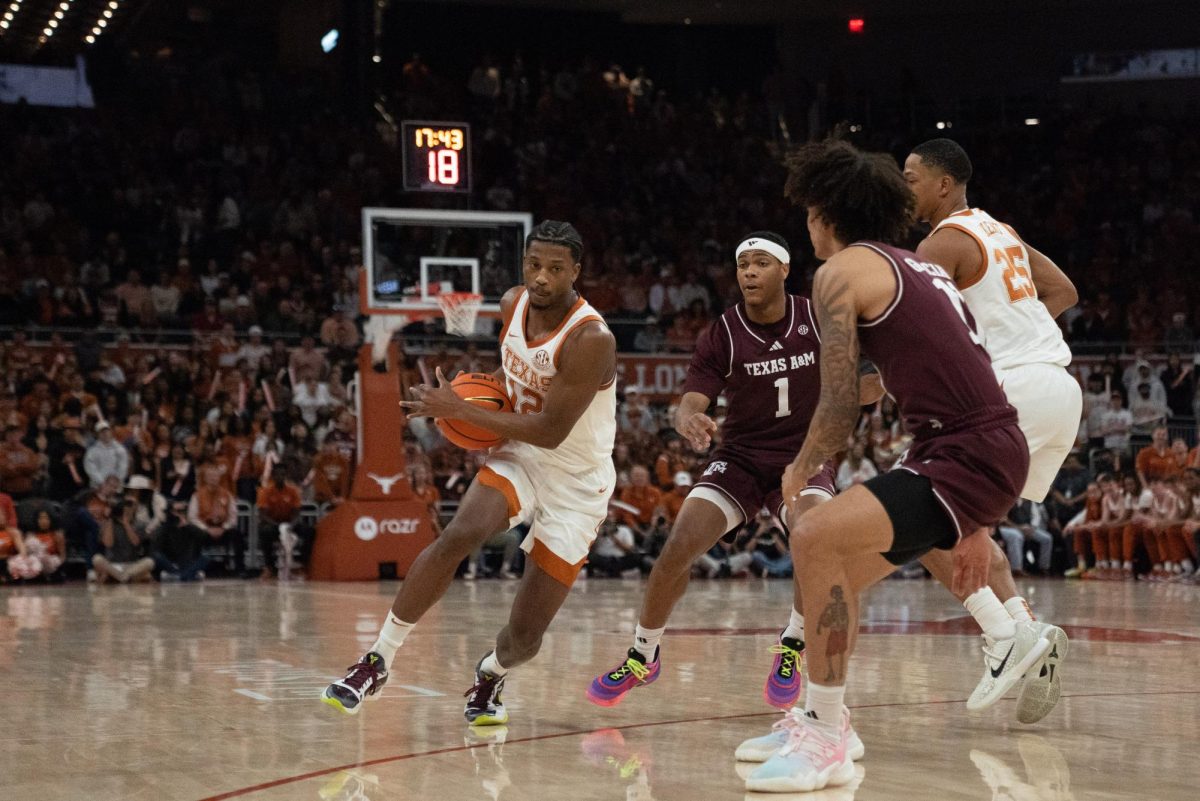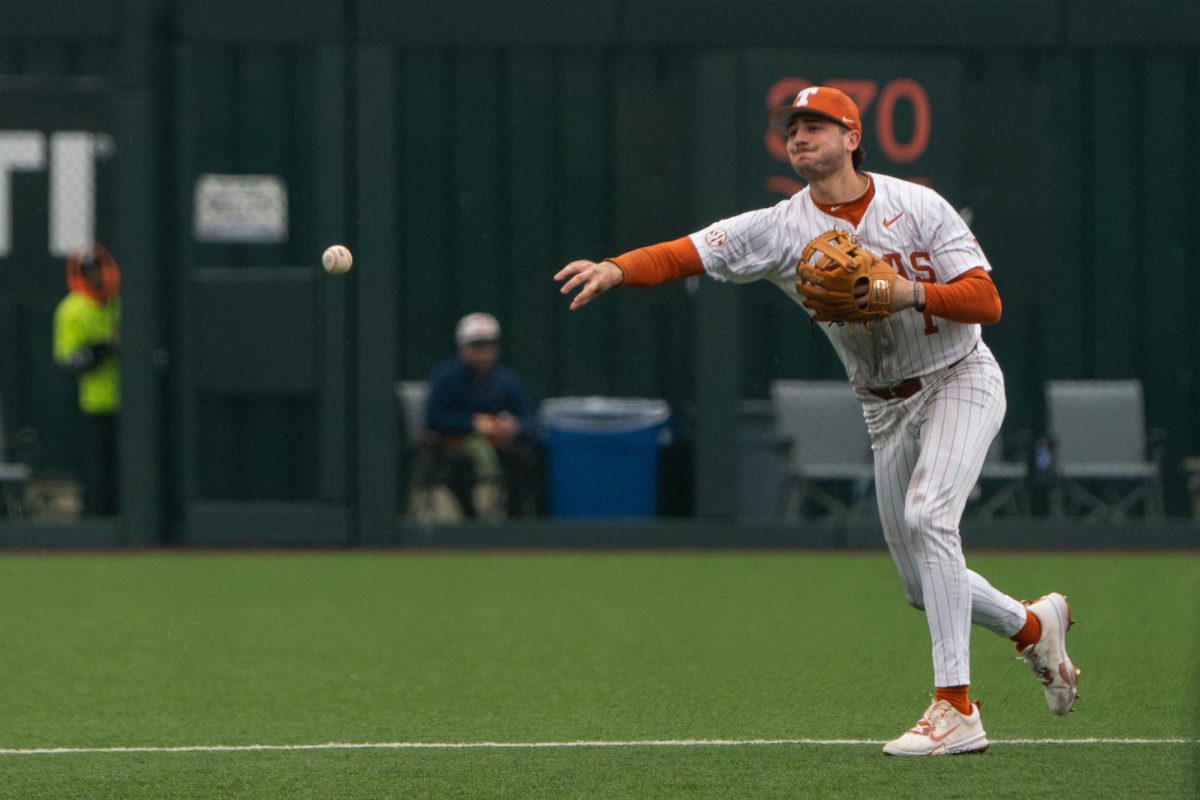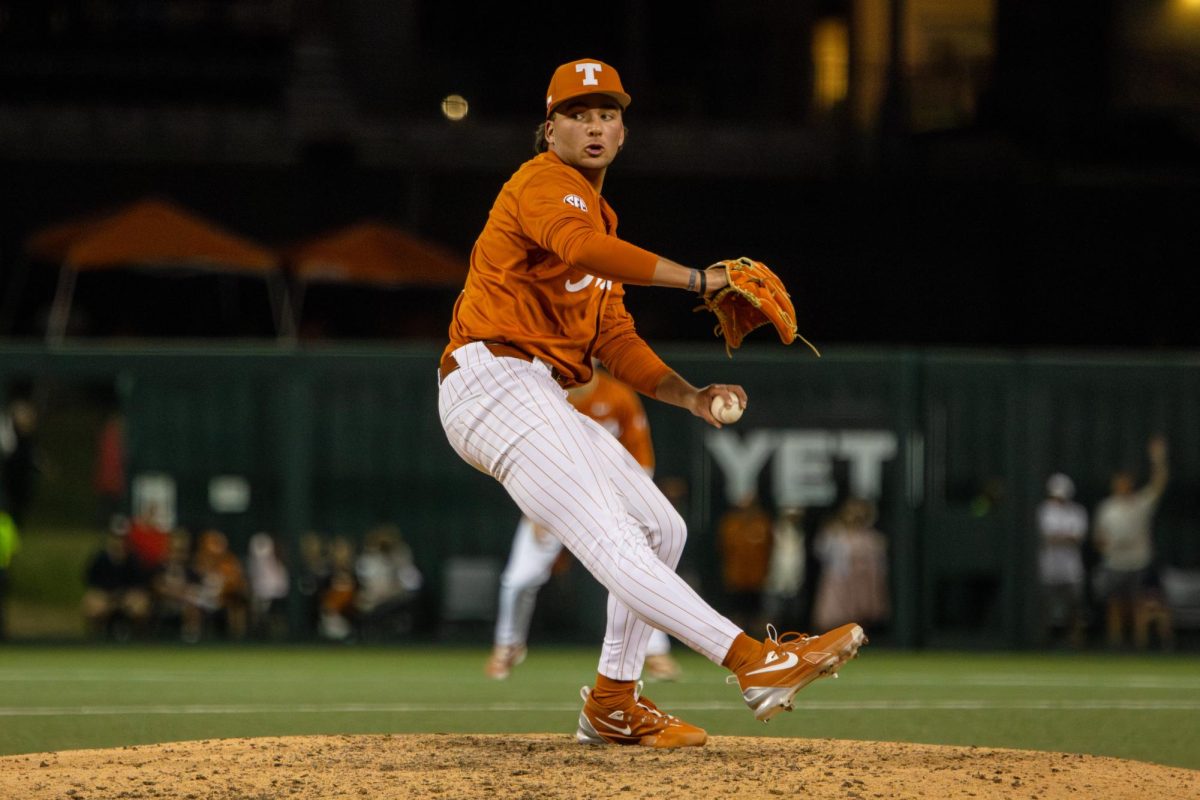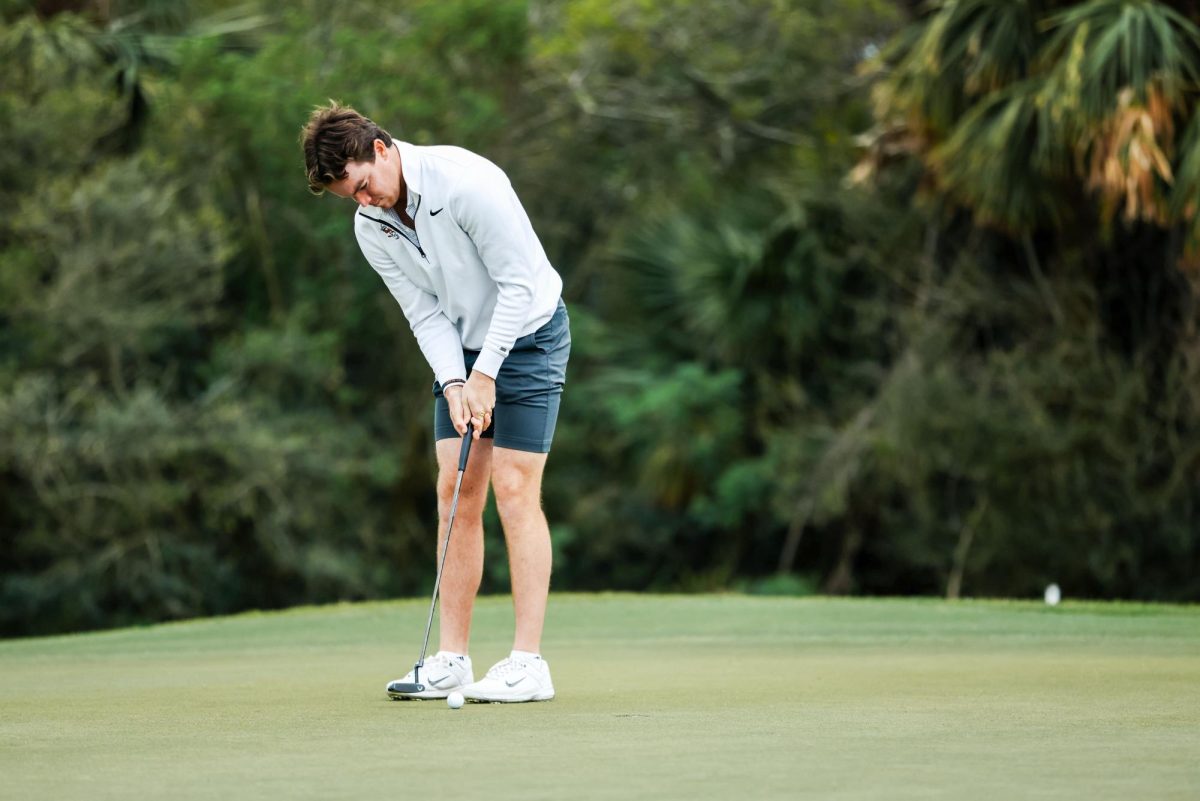It isn’t easy for an athlete to stop competing, but that’s exactly what the former student-athletes who were members of a panel on concussions did out of concern for their health.
“There is a hole in your heart that is going to happen,” former Northwestern soccer player Anna Cassell said Tuesday at a panel on concussions.
Cassell, former Boston College safety Spenser Rositano, former West Virginia starting quarterback Clint Trickett and Molly Poletto, University of Utah undergraduate assistant for soccer, spoke on a panel Tuesday night to discuss their decisions to retire from athletics after suffering multiple concussions. All four athletes left their respective sports because of fear of health risks.
Members of the panel, which Texas’ Center for Sports Leadership & Innovation presented, said the head injuries caused them to make decisions about their future in sports.
“I was getting concussions more easily, I was becoming more prone. So that’s when I [sought] help and saw a neurologist and talked and consulted with them. They were like, ‘You got to think about your future,’” said Cassell, who amassed six concussions before retiring. “You only get one brain in life, it’s not something you can get surgery on. That was one of my leading rules into hanging it up.”
Concussions have affected members of Texas athletic teams, as well. Former Texas quarterback David Ash was forced to retire early because of multiple concussions throughout his career. But the decision didn’t come easily.
“I just prayed a lot about it,” Ash said at a news conference in September where he announced his retirement “The decision, it was, I think, the process of it all, the doctor and coaches.”
The decision to retire is often the result of the possible consequences of multiple concussions, such as such as depression and anxiety.
“I never really was a person who believed in depression,” said Trickett. “It is real, and it’s when I was by myself.”
Along with depression, the topic of whether concussions are linked to an increased risk of suicide has become a prominent focus among concussion research. Former NFL linebackers Jovan Belcher and Junior Seau, who both died by suicide, had repeated head trauma throughout their careers in the NFL.
“At least for me, just being brutally honest, there are suicidal thoughts within this,” said Poletto.
However, at the panel, the athletes said the most prominent way they dealt with their concussions is by talking to and consulting with experts to better understand their injuries.
“Talking about it helps a ton,” said Trickett. “Expressing how you feel and what you’ve gone through is one of those things that absolutely help athletes who are dealing with concussions.”

